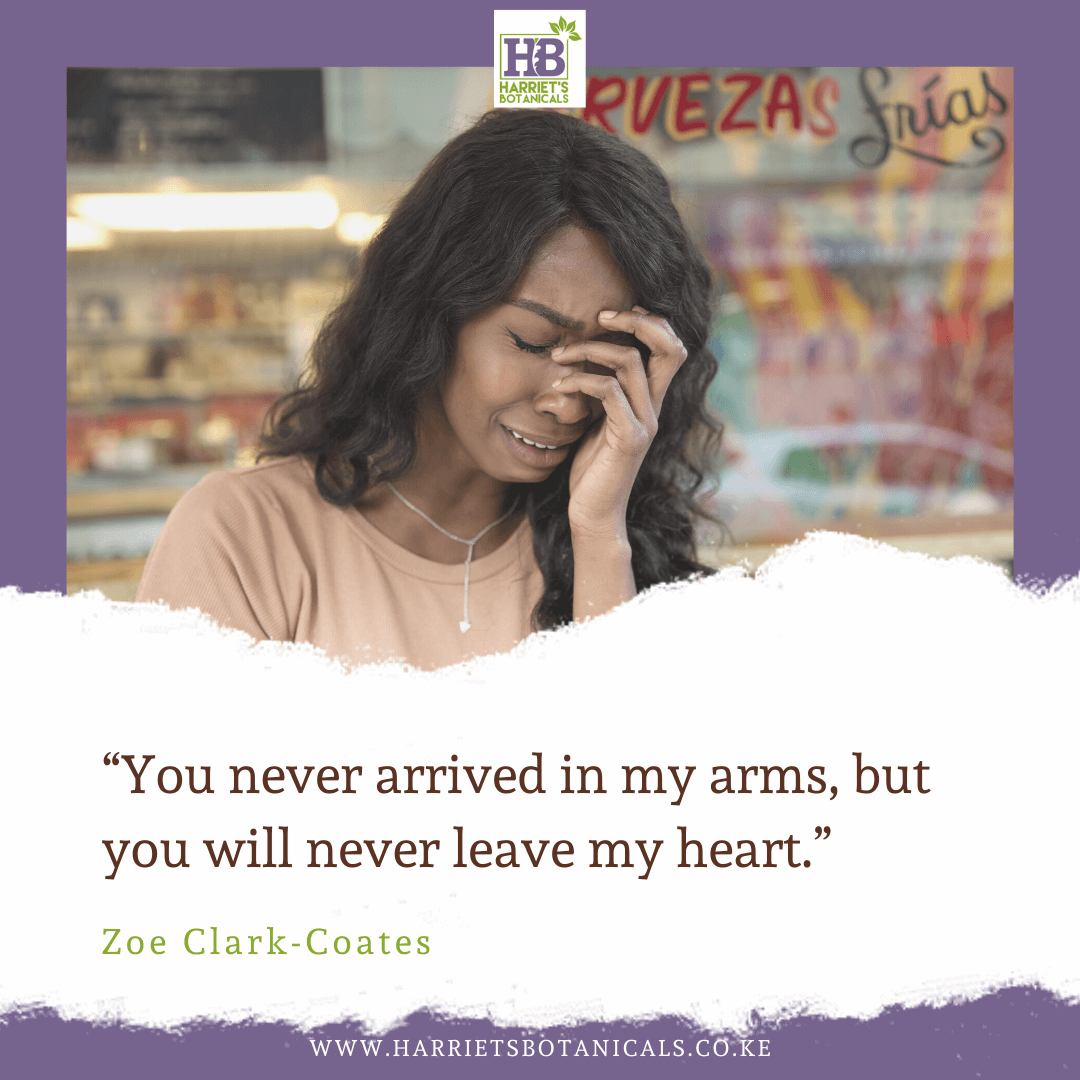When it comes to grief, there isn’t a one fits all method to cope with the burden of loss and it doesn’t make it easier knowing that one in every four pregnancies will end up in a miscarriage. One in six of these women who lose a baby in early pregnancy may also experience long-term symptoms of post-traumatic stress. This common occurrence poses a difficult but all too familiar narrative that we battle with in terms of dealing with the anger and pain of loss and trying to find comfort from those around us. The person going through it not only experiences great emotional distress but also a lot of absolute physical agony. The person or the couple going through the miscarriage don’t know what sort of help they need and are often left feeling unsure about how to cope and a lot of questions with different pieces of advice that may not be helpful to their loss and pain.

My mum lost two of her pregnancies, she didn’t talk much about it except on very rare occasions when organizing old mementos when she would come across something that reminded her of the babies she lost after quite some traumatic and near-death experiences. Her demeanor remained nostalgic as she recalled the names she had chosen or the tiny clothes she bought in preparation for her bundles of joy. It was hard to imagine her pain and even after all these years and five grown children later, she still had a place in her heart for the ones that didn’t make it to term. Her sister experienced the same grief after losing a baby during a difficult pregnancy. The people around her encouraged her to chin up and try again… not too long after, they said. And that she was fortunate to have three healthy children before her tragic loss. She did try again, held her own and gave birth to a beautiful set of twins a year later. I’m not sure if they had a chance to express their pain or anger when all around their peers and society didn’t provide a chance for them to do so. It’s been many years and personally, it is still as difficult to know what type of support is needed or where to get proper help to cope with loss.
I was curious about the type of support women and their partners have in terms of loss and coping with pain and anger after a miscarriage. A lot of the stories shared through anonymous apps gives some reassurance that they are not alone, this is something common but also unique in every case. They get to share and find empathy more than anything else;
“Since my miscarriage every now and then I come back to this thread. I can’t believe how many of us suffer because of this each day. I feel like this is a room of women around the globe where we know each other’s pain and I must confess that it helps me a lot, knowing that I’m not alone in this and seeing so many women comforting each other really makes me feel strong and proud to be a woman…” Anonymous (Flo App)

More rooms are needed for women and their partners who suffer in silence or alone. There is no shame in expressing pain or anger or being numb over a loss. And for others, expressing their relief because it was not the ideal situation. After searching online (because we are in the digital age) I came across a support group Still a Mum who provides psychosocial support around maternal health for mothers and their families. Not everyone can afford to pay for therapy and after searching some more I found groups on social media, podcasts and apps that have tried to fill those gaps in offering safe spaces for expressing this pain and to offer support. There are also church communities that gather to talk about grief and loss and offer that room that many need during those difficult moments. For those of us that offer a shoulder, we need to learn to listen more and put our need for giving advice aside in order to really be present to what those who are grieving need.
We would like to invite you to share your stories and how you managed to cope after a loss. Write to us via email or via our social media pages at Harriet’s Botanicals.












